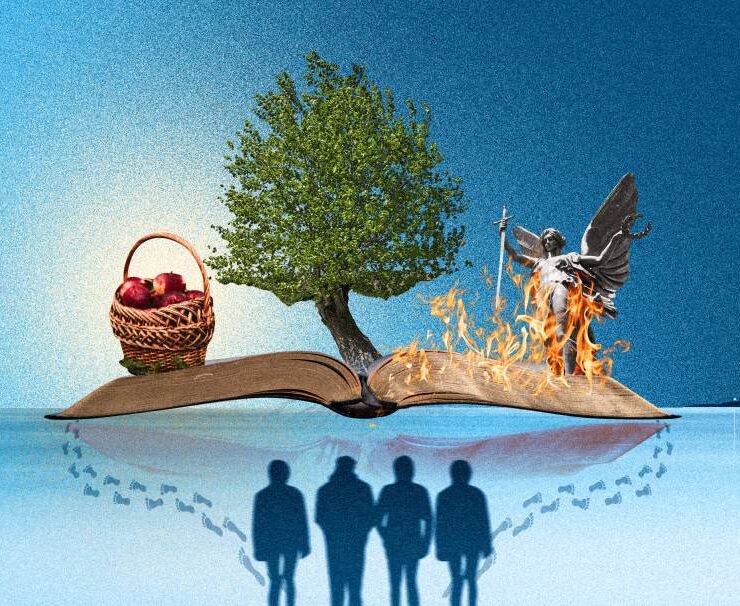The power of God’s saving mercy

April 6—Fifth Sunday of Lent Readings: Isaiah 43:16-21; Psalm 126, R. The Lord has done great things for us; we are filled with joy.; Philippians 3:8-14; Gospel—John 8:1-11
Today’s Gospel is a Pope Francis Gospel. Two of Pope Francis’ early pronouncements expressed the message of this Gospel.
In 2013, when asked about his views on homosexuality, he responded, “If a person is gay and seeks out the Lord and is willing, who am I to judge that person?”
In the months that followed, he emphasized the need for the church to be more pastoral and more inclusive. He likened it to a field hospital that needs to heal so many people, thus becoming more pastoral.
So it is with the Lord in today’s Gospel. When the scribes and Pharisees brought a woman caught in adultery, they had expected him to condemn her into being stoned. But his response was, “Let the one among you who is without sin be the first to throw a stone at her.”
“Who am I to judge that person?”
Compassion
There is much to learn in terms of compassion and being more tolerant in a world where polarization seems to be the order of the day, and rash judgement the default mode.
What is even more worrisome is even if people are confronted with the facts, they refuse to believe and continue to hold on to their biases and judgments.
As one church leader put it, “We demonize one another. We should dialogue more.”
This is the power of God’s saving mercy: We do not judge. We set aside biases and judgment. We open ourselves to one another in a spirit of understanding and compassion.
In the Gospel, the scribes and Pharisees posed this challenge: “Teacher, this woman was caught in the very act of committing adultery. Now in the law, Moses commanded us to stone such women. So, what do you say?”
This brings us to the second point of the Pope asking the church to be more pastoral and to attend to those in need of care and consolation.
Challenging the status quo
The Lord challenged the status quo of his time in a nonconfrontational manner, but with a clarity and certainty of where he was coming from.
As we would usually say now, he kept his cool. Then he delivered the core of his message: “Let the one among you who is without sin be the first to throw a stone at her.”
It was a call to introspection. It was a call to conversion. It was a call to one of the deepest realities of our shared humanity: We are all sinners in need of God’s mercy and forgiveness.
The third and final point for our reflection is the Lord’s message to the woman caught in adultery.
“‘Woman, where are they? Has no one condemned you?’ She replied, ‘No one, sir.’ Then Jesus said, ‘Neither do I condemn you. Go, and from now on do not sin anymore.’”
The Lord reminds us that God does not condemn the sinner. He does not condemn us, but he exhorts us not to sin anymore.
This is the tremendous and amazing grace of God’s mercy, forgiveness, and love.




















